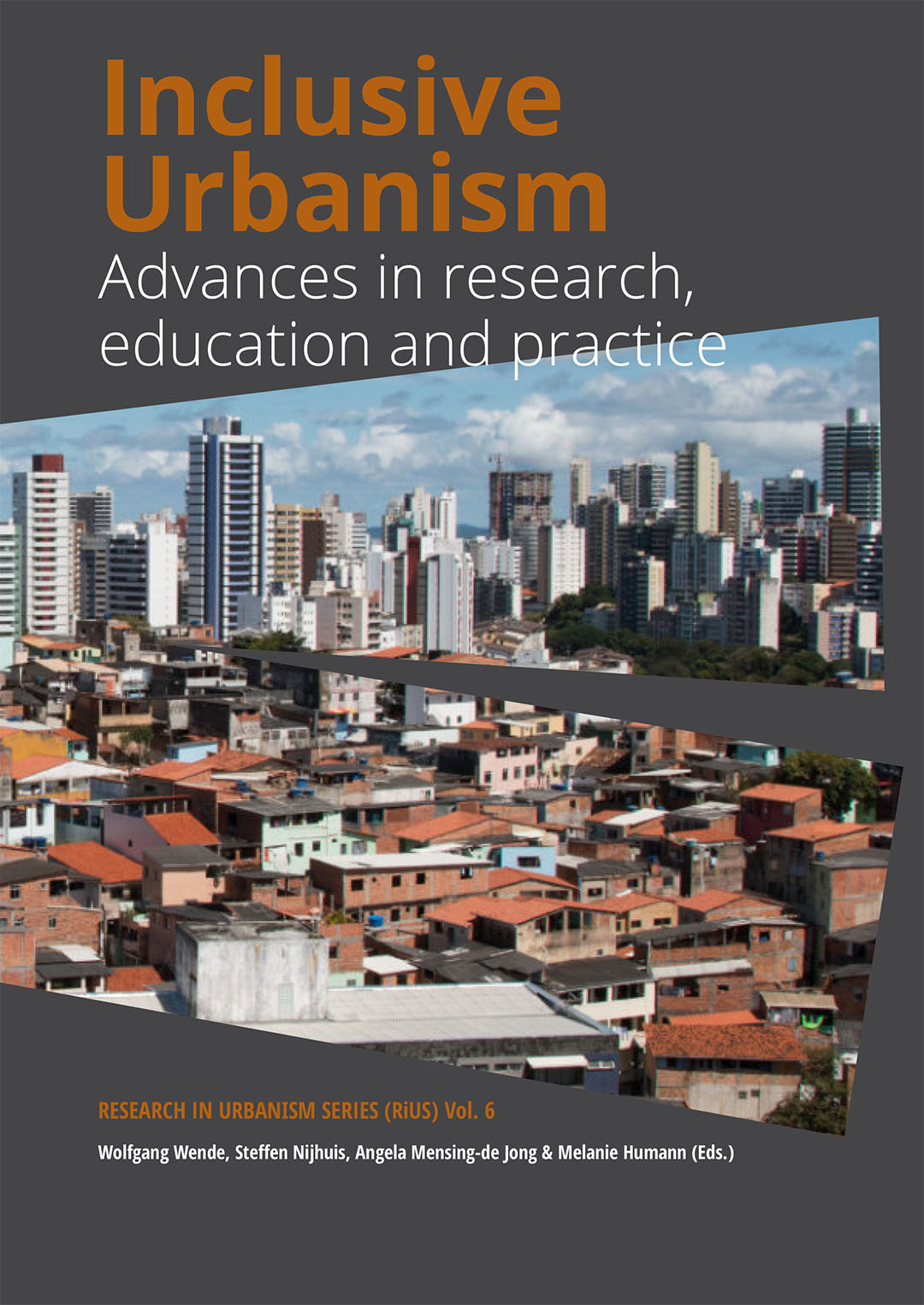New open-access book "Inclusive Urbanism"
More than half of the world's population is agglomerated in cities. According to a UN projection, approx. two thirds of the global population will be city dwellers by 2050. “Advancing urban resilience is a critical challenge for urban landscapes across the world. In order to address issues like climate change and urbanization, urban regions need to develop the adaptive capacities of the social and natural systems, from the urban neighbourhoods to river catchments, as the basis for sustainable urban development. It requires an integrative approach in which inclusive planning and design approaches are of paramount importance” states Steffen Nijhuis, co-editor of a new open access publication "Inclusive Urbanism" in the Research in Urbanism Series.
The publication is dedicated to inclusive urban development - both at local level and in a global context. Inclusive Urbanism is a result of a collaboration between TU Delft and TU Dresden and edited by Wolfgang Wende, Steffen Nijhuis, Angela Mensing-de Jong and Melanie Humann.
Social issues and participation – both at home and all over the world
From Dresden-Hellerau to São Paulo: The Brazilian scientist Alexandra Aguiar Pedro investigated the intercultural urban gardening project Golgi-Park in the Dresden district of Hellerau. Under the right conditions, such initiatives can be conducive to integration and encourage social engagement. The researcher and urban planner is now using the findings to set up a similar urban gardening project in several favelas in her home city of São Paulo.
This topic is only one of the many contributions to the new book that are geared towards practical application. Several articles deal with the participation of the population in planning processes and outline alternatives to a “top down” form of urban development. The scenarios range from a small German town, in which the willingness of young people to participate is put to the test, to the new African conurbations, where joint workshops with planners and residents are to ensure more inclusiveness in the sense of equitable participation. So-called informal settlements, which are no longer restricted to the Global South in the form of huge, squalid slums, have no longer merely negative connotations. Rather, planners recognise the opportunities offered by spontaneous urbanisation processes and search for ways to support people in their self-organisation.
Open Access - More participation in scientific knowledge
Urban development itself is becoming more inclusive and participatory, as is science. For this reason, the publisher deemed it pivotal to make the book freely available in Open Access. The book is available through this DOI-link.
“Inclusive Urbanism" is published in the Research in Urbanism Series (RiUS). RiUS is an open access, peer reviewed publication series, hosted by TU Delft, Faculty of Architecture and The Built Environment, and indexed by Scopus, Google Scholar, and others. This volume contains selected contributions from the international conference "Urban Studies in Education and Research", which took place at TU Dresden at the end of 2018.
